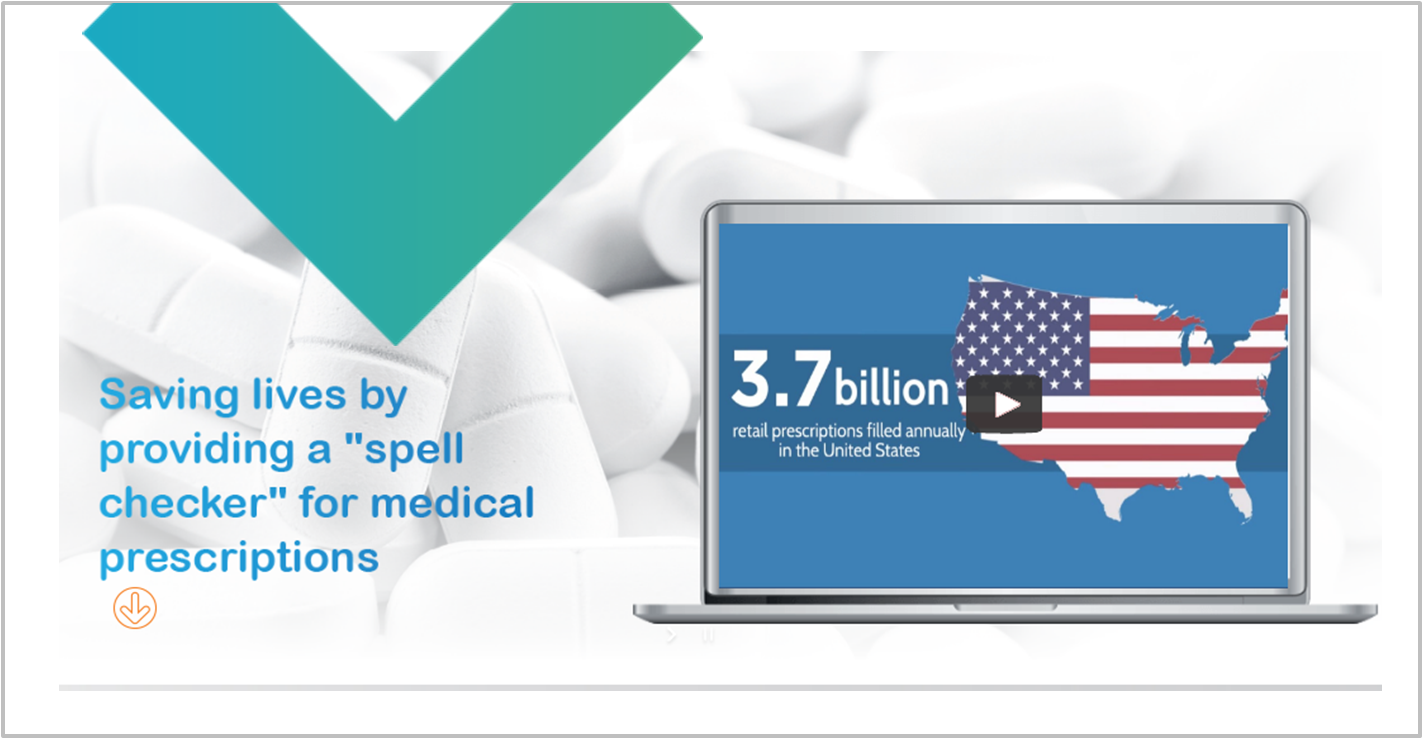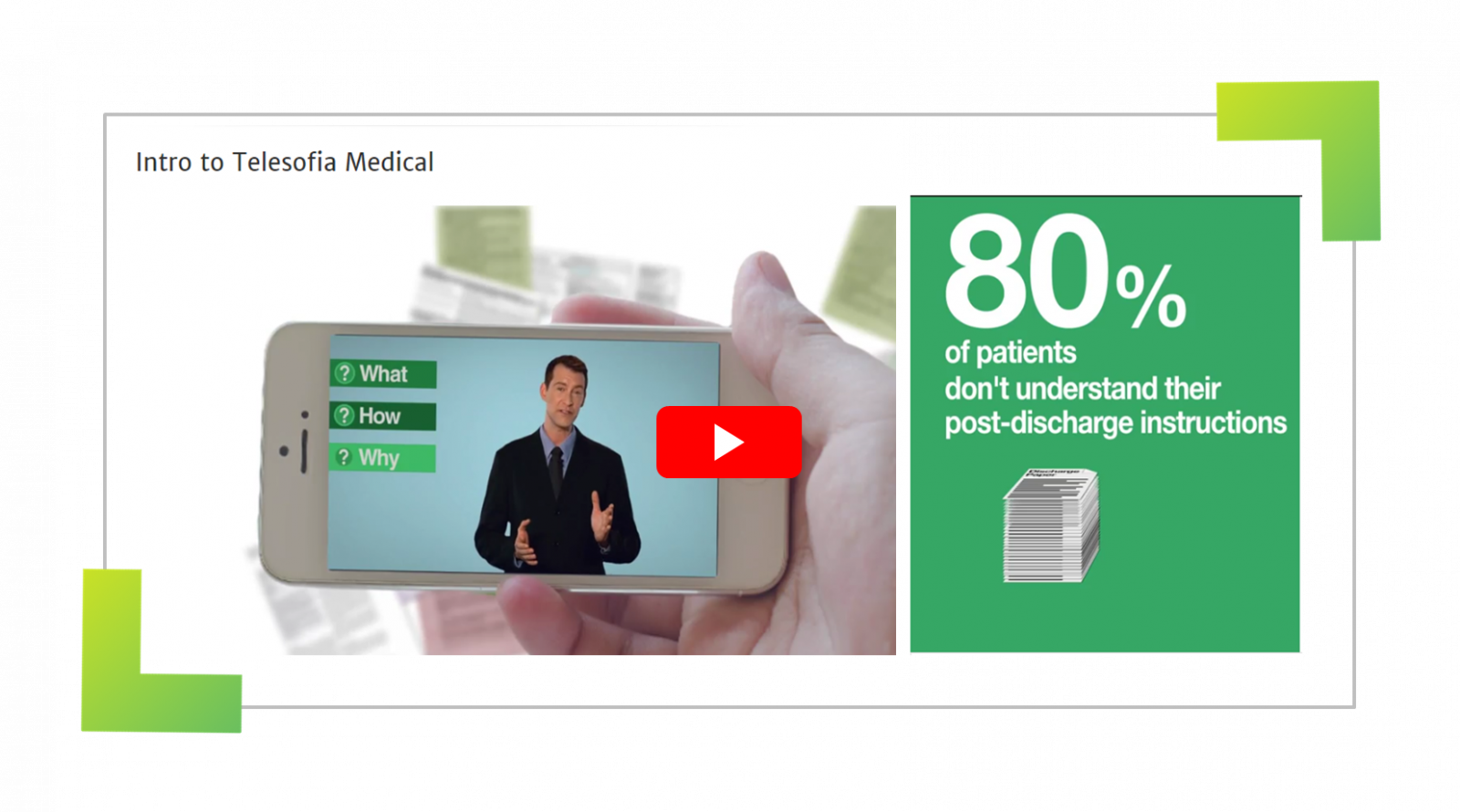Innovative Technologies Preventing Human Error
Digital medicine has enabled significant progress in preventing errors during medical treatment. The Israel Innovation Authority supports two companies developing such technologies. The first uses additional follow-up of common and critical clinician error when issuing a prescription and the second helps in preventing mistakes by patients who incorrectly implement doctor's instructions
Nobody wants to make a mistake, especially when human life and public health are at stake. However, even the most dedicated and proficient clinicians cannot avoid occasional error, and they frequently remain unaware of their frequency, serious though the errors may be. To mention just a few examples: healthy people mistakenly prescribed chemotherapy, diabetic patients are given medication that may cause them harm, a two-year-old boy prescribed Viagra, an eighty-year-old woman who received pills to delay ovulation, patients taking blood-thinners that underwent another medical procedure without being instructed to suspend their use. In all these cases, it is clear that these errors are avoidable, despite the pressurized and difficult under which doctors operate.
Digital medicine provides technological solutions that have the potential to prevent these and other mistakes during medical treatment and to help physicians save lives. Anya Eldan, Deputy Director of the Israel Innovation Authority, points out that digital medicine has been enjoying a worldwide trend of significant growth over recent years. "The rate of growth of digital medicine ventures stands at 50-100 new start-up enterprises every year. Although there is no uniform definition, there is, however, a consensus that digital medicine tends to bring about a more efficient health system, to enhance public health and to prevent mistakes during medical treatment", she clarifies.
The Trigger – The Death of a Nine-Year-Old
During his tenure as deputy director of the Wolfson Hospital, Dr. Gidi Stein encountered the case of a nine-year-old boy who had died after having been prescribed the wrong medication mistakenly by his family physician. Instead of medication for asthma, the child received an anticoagulant, and a week later fell from his bicycle and died as the result of a cerebral hemorrhage. This tragic case was the trigger for Dr. Stein to integrate his medical experience with his professional past as a software designer. "The understanding that a child may die as the result of a wrong click of the mouse, deeply shocked me, and led me to seek a solution for this problem". This realization led to the establishment of MedAware – an Israeli startup company that has developed a 'big-data' based algorithm that prevents clinicians from issuing incorrect prescriptions.
"We realized that the existing solutions to the problem were not good enough. Most fail to identify arbitrary errors, or they are inaccurate systems that provide warnings ninety percent of which are false alarms so that the doctors cease relating to them seriously, like the child who cried 'wolf'".
"Our methodology is like the manner in which the credit card companies detect fraud: consumer behavior that differs from the regular pattern raises a 'flag' is raised,and the company contacts the client for clarification. Similarly, the MedAware system investigates and processes millions of medical records and can provide a warning when the prescription issued to the patient is out of the ordinary", Dr. Stein explains. "In practice, the program is connected to the hospital's computer system and the database of millions of patients thereby creating a mathematical model that describes the probability a individual treatment for each patient. The program reads the patient's data in real-time and issues a warning when it identifies a doctor's prescription that is inappropriate for his patient's treatment."
Accurate Warning in Real-Time
During the testing of the algorithm, MedAware scanned approximately 44 million real prescriptions issued in the past to hospitals and community clinics throughout the country. "We discovered that of 400 thousand patients, nearly 6000 had received a mistaken prescription, some of which were life-threatening", stresses Dr. Stein. "These patients were also found to be at a higher risk of readmission to hospital and even death. We located the errors with a precision rate of approximately 80 percent."
"Also, we also performed a similar test in the United States together with Dr. David Bates, one of the leading figures in the field of patient safety", he elaborates. "We conducted a joint study and tested the algorithm on 800 thousand patients in out-patient clinics at two of the world's best hospitals affiliated with the Harvard Medical School: Brigham and Mass General. The findings which were published in one of the leading medical journals proved that we are capable of identifying life-threatening errors with an accuracy of more than 75 percent and that physicians would have acted correctly, had they only received a reliable warning."
"In contrast to other solutions, our warning system provides an alert only once a day in each hospital department. We focus on cases in which doctors didn't pay attention, pressed the wrong button, or on clerical errors in the records. Once installed into the medical workflow processes, our program has proved very accurate and raises a red flag only in cases of 'no alternative'. There are approximately three thousand physicians in any individual hospital's database and the scope of combinations is almost impossible unmanageable. Therefore, only 'big-data' systems, based on the gathering of information and patterns, can identify the irregular cases and prevent them in time. From the moment that the doctor prescribes until the patient receives the medication, there are some intersections for possible human error. Using our system, we have identified those problematic points in the workflow, and the hospitals have subsequently implemented widespread changes at certain points of problematic interface."
"Our program is installed today at the Tel Hashomer Medical Center and in the health center clinics of the Maccabi Health Fund. We also recently signed an agreement to cooperate with the Becton Dickinson Corporation whose computer systems are installed at hundreds of thousands of hospitals across the United States. In 2012, the first year of our operation, we received funding from the Israel Innovation Authority. Likewise, we also received funding from the BIRD Foundation for the collaboration with Becton Dickinson", says Dr. Stein.
The BIRD Foundation, the Israeli-American bi-national fund for industrial research and development, has been operating for nearly 40 years in encouraging collaborations between Israeli and American companies in different technological fields. The Foundation finances up to 50 percent of a project's cost, capped at a maximum of USD 1 million for each joint project, to be returned only if the venture succeeds commercially. The projects submitted to the Foundation undergo meticulous scrutiny by Israeli appraisers from the Innovation Authority and American appraisers from the U.S National Institute of Standards and Technology. Approximately 25 percent of all the BIRD Foundation investments today are in the field of Life Sciences.
A Personal Film Clip in Less than a Second
In addition to the scenario detailed above, errors can also occur when prescriptions issued to patients are accurate and appropriate for them, but when the patients themselves use them incorrectly and don't use the medication in accordance with the doctor's instructions. The Telesofia Corporation's innovation – personal film clips created especially for the patient and according to his precise medical needs – assist in prevent such mistakes. "We iinstantly and automatically create a personal video clip for each patient, providing him with precise personal instructions. The clips are sent to the patient and he can view them repeatedly without restriction", explains Dr. Rami Cohen CEO and founder of Telesofia Medical Ltd., and a physician by profession. "It is not merely for patients released from hospital, but also for any case in which there are instructions and information to transmit to the patients, such as a personal message, the display of the correct dosage in a syringe, the picture of the correct tablet to be taken etc. The film clips are presented to each patient in the manner most appropriate for him – demonstration on a model of the same sex, medical warnings relevant to the patient's gender, the choice of appropriate audio for him, and others. The objective is that the patients watch the clips, fully understand the content and thereby know exactly what to do in order to perform the treatment in the optimal manner."
"As a physician, I saw a tremendous need for this", mentions Dr. Cohen. "I frequently met patients who didn't properly understand the instructions prior to surgery or after receiving a prescription for medication to be administered at home. Naturally, this is the health system's problem. We provide information on paper, in a format that is difficult to read, and in a professional jargon that is incomprehensible to the majority of patients. Telesofia's objective is to make this important information accessible to all patients."
As Dr. Cohen explains: "The technology that we have developed is capable of creating these instructive film clips in less than a second. We can then send them to the patients by a variety of means: as a link via SMS or e-mail, by integrating them in the health fund systems, or any by other convenient means. All he needs to do is press PLAY. The clips are issued to the patient by a reliable party – doctor, nurse or pharmacist – and remain constantly available for repeat viewing".
Eight Films in Eight Days
Since 2011, the year in which Telesofia Medical was founded, the company has won many prizes and commendations. One of them is the Best New Product Innovation Award for 2016 granted by the international growth partnership company Frost & Sullivan. Telesofia's product received an overall score of 9.5 out of 10.
"The previous year we won another prestigious prize from the Gertner Institute," Dr. Cohen mentions. "From a business perspective, the success is mainly with world-leading pharma companies for whom we create patient support programs that include a series of tailored short video clips that are then sent to patients at a particular time and which contain instructions regarding each stage of the treatment."
"Funds received from the Israel Innovation Authority enabled us to work on a further development of our technology – a sophisticated automatic system for patients with pneumonia, following their release from hospitals in the United States. For the first eight days, the patients receive clear instructions in accordance with the hospital records and the patient's specific needs. These video clips offer a nurse an infinite range of possibilities, from which the individual patient receives eight clips at fixed and pre-determined intervals. The clips do not deal only with the manner of administering the medication, but also with the correct time for follow-up visits with the family doctor", explains Dr. Cohen. Our final objective is that we become accustomed to receiving Telesofia's video instructions just as we today receive the information leaflet in the package of the medication itself."
An additional medical health system being worked in by Telesofia Medical is the construction of a personal calculator, intended for use by anyone, that provides various recommendations for improving his or her health. The product's alpha version, developed together with the 'Tribune' (a giant American publisher and distributor) and with the support of the BIRD Foundation, has already been launched in the United States. This development is also based on features and animations that make up the personal instructive video clips.
"The development of personalized health care, combined with the global trend of helping patients leave hospital to receive better treatment at home, enables our company to expand and grow", says Dr. Cohen. "Telesofia Medical is at the sales stage and the majority of our commercial activity is focused on the United States and Europe."
"We are happy to support projects that aid the streamlining of the health system and the strengthening of the bond of trust between the physician and the patient", emphasizes BIRD Foundation Executive Director, Eitan Yudilevich. "We welcome the Foundation's investment in the Telesofia and MedAware projects in conjunction with their American partners Becton Dickinson and the 'Tribune' and wish them much success in their lifesaving mission."



